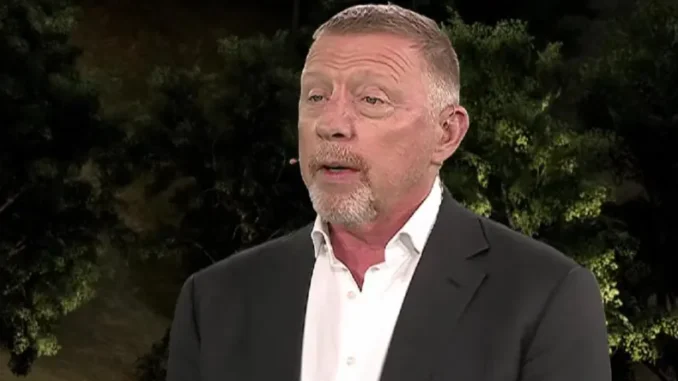
In a fiery twist to an already explosive saga, tennis icon Boris Becker has unleashed a scathing critique of Novak Djokovic’s latest off-court endeavor—the Professional Tennis Players Association (PTPA) lawsuit against the sport’s governing giants, the ATP and WTA. The legal battle, launched on March 18, 2025, in a New York federal court, has sent shockwaves through the tennis world, with the PTPA accusing the tours of operating like a monopolistic “cartel” that suppresses player earnings and stifles competition. But Becker, a six-time Grand Slam champion and one of the game’s most outspoken legends, isn’t buying the narrative, slamming the move as a misstep that threatens to fracture the sport rather than fix it.
The PTPA, co-founded by Djokovic and Vasek Pospisil in 2020, has long positioned itself as a champion for players’ rights, aiming to give athletes a louder voice in a sport where they operate as independent contractors without a formal union. Their 163-page complaint doesn’t hold back, painting the ATP, WTA, International Tennis Federation (ITF), and International Tennis Integrity Agency (ITIA) as a cabal that caps prize money, enforces grueling schedules, and limits players’ freedom to compete in rival events. “Tennis is broken,” PTPA executive director Ahmad Nassar declared, emphasizing a system that “exploits talent, suppresses earnings, and jeopardizes health and safety.” The lawsuit, backed by over 250 players—including stars like Nick Kyrgios and Sorana Cirstea—demands a radical overhaul, from fairer revenue splits to less invasive anti-doping measures.
Becker, however, sees it differently. “This is ridiculous,” he fumed in a recent outburst, his frustration palpable as he dissected the PTPA’s gambit. The German legend, who once mentored Djokovic during a successful stint as his coach from 2013 to 2016, didn’t mince words, arguing that the lawsuit risks alienating the very bodies that have propelled tennis to global prominence. “The ATP and WTA have been the backbone of this sport for decades,” he insisted, pointing to the tours’ role in growing prize money and creating a structured calendar that balances player welfare with fan appeal. To Becker, the PTPA’s accusations feel like a personal attack on a system that’s far from perfect but hardly the oppressive machine it’s made out to be.
Djokovic, a 24-time Grand Slam winner and the PTPA’s figurehead, has stayed off the lawsuit’s plaintiff list, though his influence is undeniable. “He’s very involved, very up to speed,” Nassar confirmed, noting Djokovic’s seat on the executive committee. The Serbian star has long championed reform, once lamenting how lower-ranked players—like those outside the top 200—struggle to survive financially despite the sport’s billion-dollar revenues. “We need a system where players can negotiate their rights,” he’s said, drawing parallels to team sports like the NFL or NBA, where unions secure hefty paydays. The PTPA claims tennis players pocket just 17% of the sport’s revenue, a stark contrast to the 35-50% seen elsewhere, and Becker’s dismissal of their fight has only fueled the tension.
The ATP and WTA have fired back, branding the lawsuit “without merit” and “misguided.” The ATP touted its 50-50 governance model, where players and tournaments share decision-making, and highlighted a $70 million boost in player compensation over the past five years. “We’ve delivered reforms that benefit players at multiple levels,” they argued, accusing the PTPA of sowing “division and distraction” instead of progress. The WTA echoed the sentiment, promising to “vigorously defend” its position while lamenting the resources this legal spat will drain. Meanwhile, Becker doubled down, questioning the PTPA’s endgame. “What do they want—chaos?” he asked, suggesting that dismantling the current structure could leave players worse off, not better.
This isn’t the first time Becker and Djokovic have clashed over the PTPA. The German’s initial reaction to the lawsuit—a stunned “Wow” on social media—morphed into a full-throated critique as details emerged. For Becker, who once guided Djokovic to six of his Grand Slam titles, the move feels like a betrayal of the sport’s legacy. Yet, for Djokovic and his allies, it’s a necessary rebellion against a system they see as stacked against them. As the courtroom drama unfolds, with parallel filings in London and Brussels, the tennis world braces for a showdown that could reshape its future—or, as Becker fears, tear it apart.
Leave a Reply